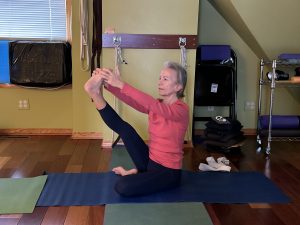It is not the strongest of the species that survive, nor the most intelligent, but the one most responsive to change. Charles Darwin
Over the last two decades, our personal and professional experience with changing circumstances in our lives has radically altered. In the business world, we often talk about this as a shifting paradigm wherein a once typical worldview, model or pattern of behaviour is replaced with something radically new and possibly antithetical.
As an example, the slower-paced simpler life of the ‘90s and preceding decades rapidly slid into a New Normal set of experiences. Whether one is referring to the economy, ecology, workplace, community or personal arena, these interconnected, volatile, uncertain, complex and ambiguous (iVUCA) events impact our inner, outer and global experience of life. In our individual attempts to keep up, there is much to learn. The learning required moves us into deeper awareness of both ourselves and life’s once-held mysteries. These radical changes demand we move beyond an incremental (single-loop learning) change consisting of new skills and abilities into reframing (double-loop learning) our beliefs. At this level of change, we address previously unconscious assumptions and patterns (defense mechanisms) that were both self-fulfilling and self-defeating. With regard to change, test your beliefs on the statements below –
TRUE FALSE
Every crisis signals a turning point where change is attempting to unfold.
I can only control or change what exists within me, that is
my perceptions, emotions, thoughts, behaviours.
I cannot control external events or people.
I accept what I cannot control.
I cannot change the past or control the future.
Life is an adventure in which I can safely participate.
By responding to what emerges in the present moment, I am
adapting and co-creating with Life.
The more “True” responses you record, the greater your mastery of change (in other words, the more you are saying “yes” to change — which is fortunate because change does not stop here).
In the process of reframing our old beliefs and behaviours, we come face-to-face with transformational change (triple-loop learning) in which the potential exists for a shift in our point of view or even our identity. Our very being changes, which is exactly what occurred when I was 19 years of age. I had the great fortune to land a new job teaching Inuit adults in a remote community in Canada’s Arctic. The radical change of context and culture required me to learn new skills (behaviours) and new beliefs (values). As well, I had to confront a deeply-felt loneliness which effectively changed my views of myself and the world. In the words of my Mother upon my return to southern Canada, “You are not the same person as when you left, Helen.”
Metaphorically, transformational change necessitates the shedding of our old skin so the birth and formation of the new can occur. In mythology, radical or transformational change in likened to the hero’s journey in which we must enter our darkness (less developed aspects of ourselves) and wander in this wilderness of uncertainty in order to learn what we require to turn our darkness into light (knowing, certainty, confidence). In essence, the hero’s journey is the adventure we call Life. We can choose to avoid life or we can choose to adapt and master the changes that life presents.
Are you an Avoider or an Adaptor?
If it is not already the case, can you shift your view of change from something you fear into an adventure you are happily taking?
What one action can you take today to shift your perceptions and behaviour about change?






